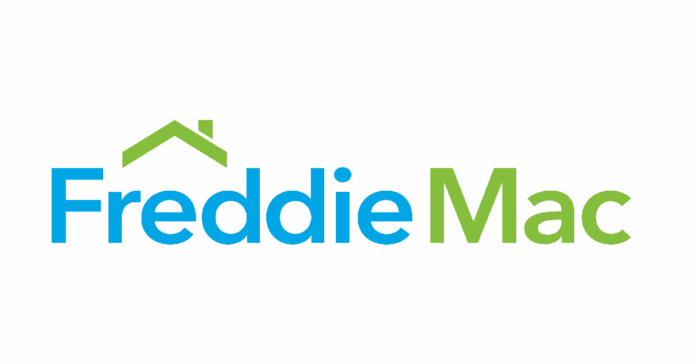FMCC’s intrinsic value suggests significant upside potential.
Federal Home Loan Mortgage Corporation (FMCC), or Freddie Mac, remains a focal point for investors eyeing undervalued opportunities in the U.S. housing finance market. With the U.S. government holding warrants for 79.9% of FMCC’s common stock and Bill Ackman’s bold restructuring plan gaining traction, the potential for significant value creation is undeniable. This blog post dives into how these factors impact FMCC’s intrinsic value, using the Buffett and McGrew Valuation Methods, and what it means for investors. We’ll also explore Ackman’s thesis from his January 16, 2025, Pershing Square presentation, assuming the government exercises its warrants. #FMCC #Investing #HousingFinance
Background: FMCC’s Conservatorship and Government Warrants
Since 2008, FMCC has operated under government conservatorship, a legacy of the financial crisis. The U.S. Treasury’s Preferred Stock Purchase Agreements (PSPAs) granted it warrants to purchase 79.9% of FMCC’s common stock, creating a significant overhang for shareholders. Currently, the Net Worth Sweep requires FMCC to pay 100% of its earnings to the Treasury, limiting capital retention. As of June 18, 2025, FMCC trades at $8.17, per user-provided data, far below its potential value. #GSEs #Conservatorship
Bill Ackman’s Pershing Square thesis proposes a path out of conservatorship, involving a re-IPO, new capital raises, and monetization of the Treasury’s warrants. This could transform FMCC into a market-driven entity, boosting its valuation and unlocking shareholder value. But how does this affect intrinsic value calculations, especially with the government exercising its warrants? Let’s revisit the Buffett and McGrew valuations, adjusting for this dilution. #BillAckman #ValueInvesting
Original Valuations: Buffett and McGrew Methods
Using FMCC’s 2024 free cash flow (FCF) of $7,305,000,000 and 650,059,553 shares outstanding (Q1 2025), the Buffett and McGrew methods estimated intrinsic values without assuming warrant exercise:
- Buffett Valuation: Assumed a 5% growth rate (stable stock), 8% discount rate, and 2.5% perpetual growth rate, yielding $246.95 per share.
- McGrew Valuation: Used a 68.22% initial growth rate (growth stock), declining to 10% by Year 7, resulting in $1,707.57 per share.
Both methods classified FMCC as a “Screaming Buy” at $8.17, highlighting its undervaluation. However, these calculations used the undiluted share count, ignoring the Treasury’s warrants. #StockValuation #DCF
Impact of Warrant Exercise
The Treasury’s warrants, if exercised, would dilute existing shareholders significantly. With 79.9% ownership, exercising the warrants would increase shares from 650,059,553 to approximately 3,241,957,380 (calculated as 650,059,553 ÷ (1 – 79.9%)). This dilution reduces intrinsic value per share:
- Buffett Valuation:
- Total equity value: $246.95 × 650,059,553 = $160,513,172,598.
- Post-warrant shares: 3,241,957,380.
- Adjusted intrinsic value: $160,513,172,598 ÷ 3,241,957,380 ≈ $49.51.
- Price with 25% margin of safety: $49.51 × 0.75 = $37.13.
- McGrew Valuation:
- Total equity value: $1,707.57 × 650,059,553 = $1,110,073,738,638.
- Post-warrant shares: 3,241,957,380.
- Adjusted intrinsic value: $1,110,073,738,638 ÷ 3,241,957,380 ≈ $342.37.
- Price with 25% margin of safety: $342.37 × 0.75 = $256.78.
Revised Valuation Table (Warrants Exercised):
| Stock Ticker | Valuation Method | Intrinsic Value per Share | Price with 25% Margin of Safety | Last Closing Price | Valuation Status |
|---|---|---|---|---|---|
| FMCC | Buffett Valuation | $49.51 | $37.13 | $8.17 | Screaming Buy |
| FMCC | McGrew Valuation | $342.37 | $256.78 | $8.17 | Screaming Buy |
Despite dilution, FMCC remains a “Screaming Buy,” as the adjusted intrinsic values far exceed the current price. #Undervalued #StockMarket
Ackman’s Thesis: A Game-Changer
Ackman’s January 2025 presentation outlines a two-year exit from conservatorship, leveraging FMCC’s $7.6 trillion guarantee portfolio and its critical role in supporting the 30-year fixed-rate mortgage. His plan assumes the Treasury exercises its warrants, with key components:
- Capital Structure Cleanup: Deem the Senior Preferred Stock repaid, amend PSPAs, and convert junior preferred stock to common equity, reducing claims on earnings.
- Re-IPO by 2027: Raise ~$15 billion in new capital, strengthening FMCC’s balance sheet and supporting growth.
- Warrant Monetization: Sell Treasury’s 63% post-IPO stake over five years (2027–2032), generating ~$106 billion from stock sales and $14 billion in dividends (Page 97).
- Valuation Projection: Ackman estimates a $38.84 share price by 12/31/2027, using a 2035E dividend of $2.41, 3% perpetuity growth, and 8% cost of equity, discounted back (Page 90).
Ackman’s diluted share count (4,096 million, Page 88) aligns with warrant exercise and new IPO shares. Adjusting the original valuations for this share count yields:
- Buffett: $160,513,172,598 ÷ 4,096,000,000 ≈ $39.19.
- McGrew: $1,110,073,738,638 ÷ 4,096,000,000 ≈ $271.01.
Ackman’s $38.84 is close to the diluted Buffett value, reflecting conservative 2% guarantee growth and 3% EPS growth (Page 88), but lower than McGrew’s due to its aggressive 68.22% initial growth. #Privatization #IPO
Why Ackman’s Plan Boosts Value
Ackman’s thesis mitigates dilution’s impact through:
- Earnings Retention: Ending the Net Worth Sweep allows FMCC to retain earnings, boosting FCF and potentially exceeding the Buffett/McGrew growth assumptions.
- New Capital: The $15 billion IPO enhances equity value, supporting expansion and reducing risk perception.
- Market Rerating: Privatization could align FMCC’s valuation with P&C insurers and utilities (14–16x P/E, Page 95), lifting multiples.
- Reduced Uncertainty: A clear exit path lowers political risk, attracting investors.
If implemented, FMCC’s intrinsic value could approach or exceed the diluted McGrew estimate ($271.01), especially if growth accelerates post-privatization. #Bullish #HousingMarket
Risks to Consider
While promising, Ackman’s plan faces hurdles:
- Execution Risk: Regulatory and legal challenges could delay the re-IPO or warrant monetization.
- Market Reaction: Investors may hesitate until privatization is certain, keeping the stock price suppressed.
- Political Uncertainty: Shifts in administration priorities could derail progress, as seen under prior administrations.
- Operational Challenges: Transitioning out of conservatorship may disrupt operations temporarily.
These risks underscore the need for caution, despite the “Screaming Buy” status. #RiskManagement #InvestorCaution
A Compelling Opportunity
FMCC’s intrinsic value, even after accounting for the Treasury’s warrant exercise, suggests significant upside from its current $8.17 price. The Buffett ($49.51) and McGrew ($342.37) valuations, adjusted for dilution, reinforce its undervaluation. Ackman’s restructuring plan, assuming warrant exercise, projects a $38.84 share price by 2027, aligning with the diluted Buffett estimate and offering a path to higher value through earnings retention and privatization. For investors, FMCC presents a rare opportunity, but monitoring regulatory and political developments is crucial. As Ackman and market dynamics unfold, FMCC could be a standout in the housing finance sector. #ScreamingBuy #FreddieMac
#FMCC #FreddieMac #Investing #ValueInvesting #BillAckman #GSEs #HousingFinance #StockValuation #Undervalued #Privatization #IPO #ScreamingBuy #StockMarket #RiskManagement #Bullish

